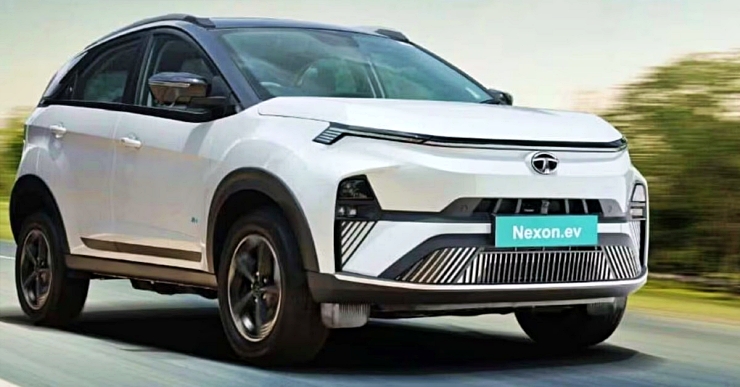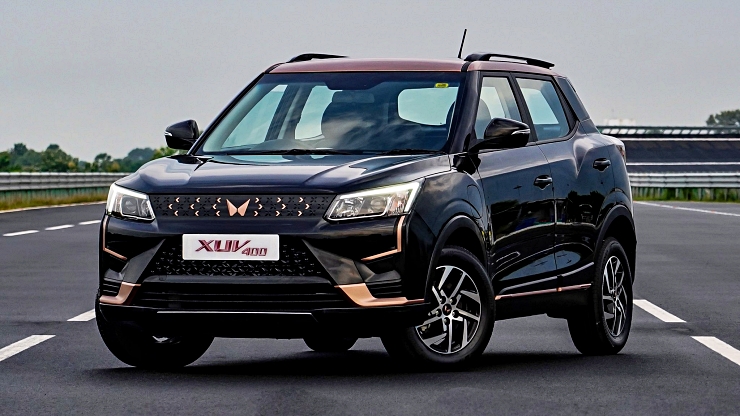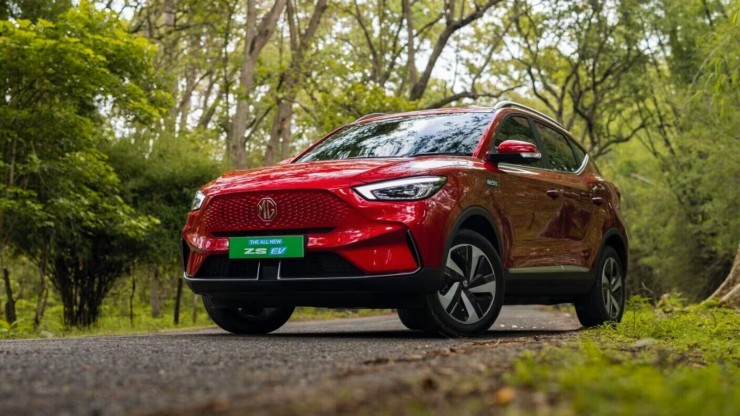2023 EV Sales Rankings: Tata Leads, MG Beats Mahindra

[ad_1]
While 2023 saw a lot of prominent car launches, the EV segment also got a major boost with many new products and facelifts hitting the market. Compared to 2022, the electric vehicle category witnessed a stupendous growth of 114 per cent in 2023, with a total of 81,870 EVs sold in India from January to December 2023. Among all the car makers which are in the EV business in the country, Tata Motors has dominated the electric vehicle category by securing a 73 per cent market share.

Among the 81,870 electric vehicles sold in India, 59,580 EVs came from Tata Motors. With this much of electric vehicles sold, Tata Motors also scored a year-on-year growth of 86 per cent for its range of EVs, which currently has Tiago.EV, Tigor.EV and Nexon.EV. The second position has been secured by MG, with it surpassing Mahindra by selling 9,430 units of ZS EV and Comet EV, its two offerings in the electric vehicle space. Mahindra ended up being third on the list of EV makers, selling 4,201 units of XUV400 – its only electric vehicle – in the whole year, garnering 5.13 per cent of market share.

The relatively new carmaker Build Your Dreams (BYD) secured fourth position by selling 1,997 units of its EV-specific lineup comprising of E6 MPV and Atto 3 crossover, thus securing a market share of 2.43 per cent in the EV space. Citroen also secured a market share of 2.36 per cent by selling 1,938 units of eC3, its only electric vehicle at the moment. Trailing the Citroen in the list is Hyundai, which sold 1,597 units of Kona EV and Ioniq 5 combined, while Kia sold 436 units of its sole EV offering, the EV6, in 2023.

Even the luxury carmakers had a crucial growth in the electric vehicle category with prominent EV launches around the year contributing to their overall sales figures. BMW led the segment with 1,280 electric vehicles, while Volvo came second with 553 electric vehicles, followed by Mercedes-Benz at the third position with 505 units. Audi sold 140 EVs, while Porsche and Jaguar Land Rover sold 95 and 9 units respectively.
Upcoming EVs
With significant growth by all carmakers in the electric vehicle space, 2024 is only going to become bigger and better for the segment. Maruti Suzuki, the country’s largest car maker, will also be entering the EV space with the production version of eVX, its first-ever all-electric vehicle. Hyundai will also answer Maruti Suzuki with the electric vehicle version of Creta, which is speculated to replace the Kona EV this year. Tata Motors will eye on strengthening its position by launching the Punch EV in the first quarter of 2023, while Citroen has confirmed that it will launch the eC3 Aircross this year. The updated Mahindra XUV400 is also on its way and will launch anytime soon.
In an interview, Shailesh Chandra, Managing Director of Tata Motors and its Electric Mobility divisions, announced that his company is set to launch three new electric SUVs next year. The introduction of these new EVs will further enhance Tata Motors’ commanding 70% market share in India’s electric four-wheeler segment. The SUV lineup includes the highly anticipated micro-SUV Punch EV, the new coupe-SUV Curvv, and the mid-size Harrier EV. However, Chandra did not disclose the exact launch dates of these EVs during the interview. Nevertheless, in a previous meeting, he confirmed that all of Tata’s upcoming electric vehicles would offer more than 500 km of range.
During the interview, Chandra expressed his concerns regarding specific hybrid car manufacturers seeking duty concessions. He emphasized that only zero-emission vehicles should receive benefits. As per his statement, vehicles that rely solely on “fuel efficiency improvement technologies” should not qualify for tax breaks. He argued that if a vehicle is not plugged into electricity, it should not qualify as an EV or be compared to EV technology. Hybrid cars draw their energy from two sources: a fraction of regenerative braking and the majority from a petrol engine. Based on this, he opined that comparing hybrids with EVs is misleading.
[ad_2]